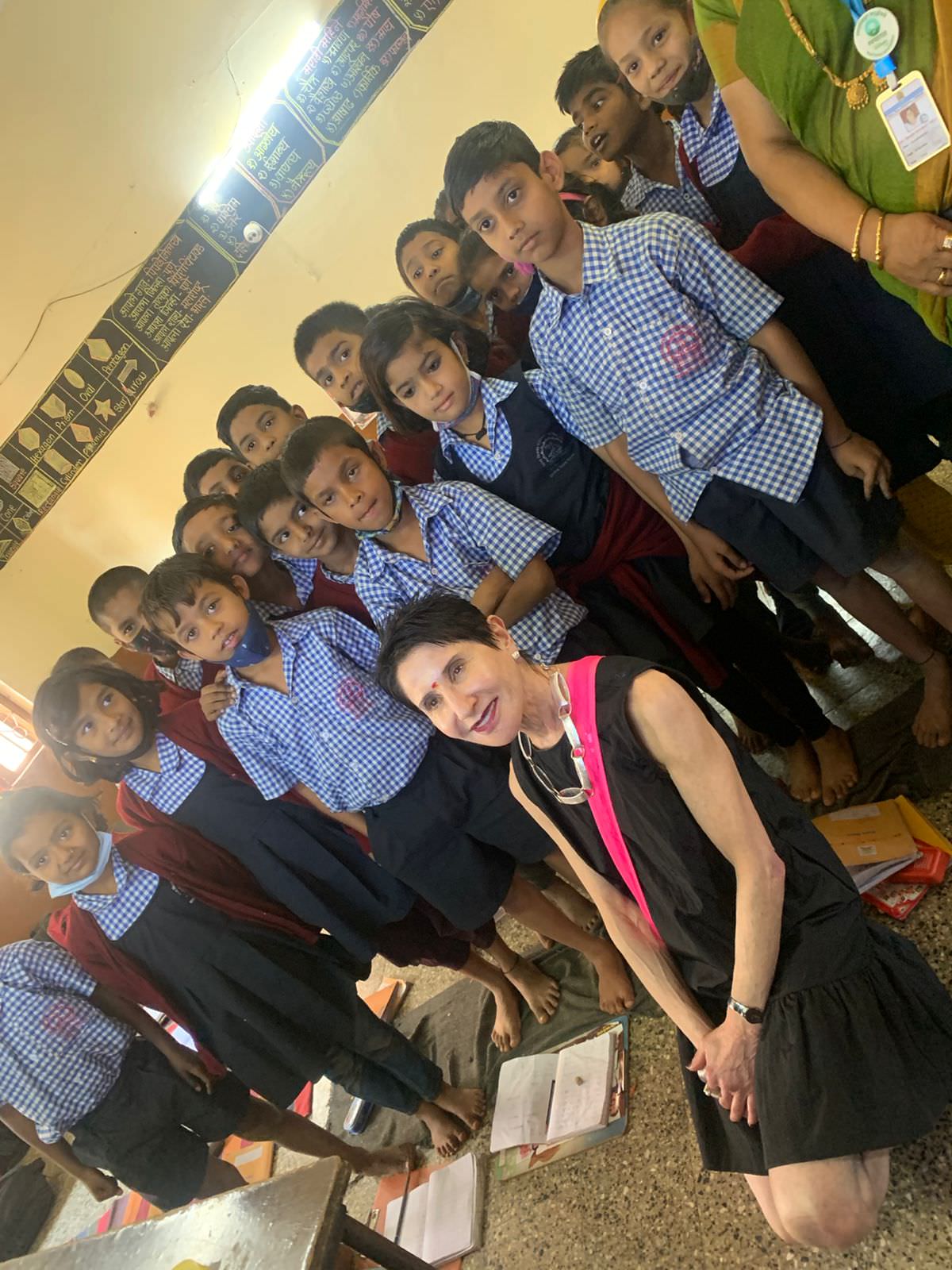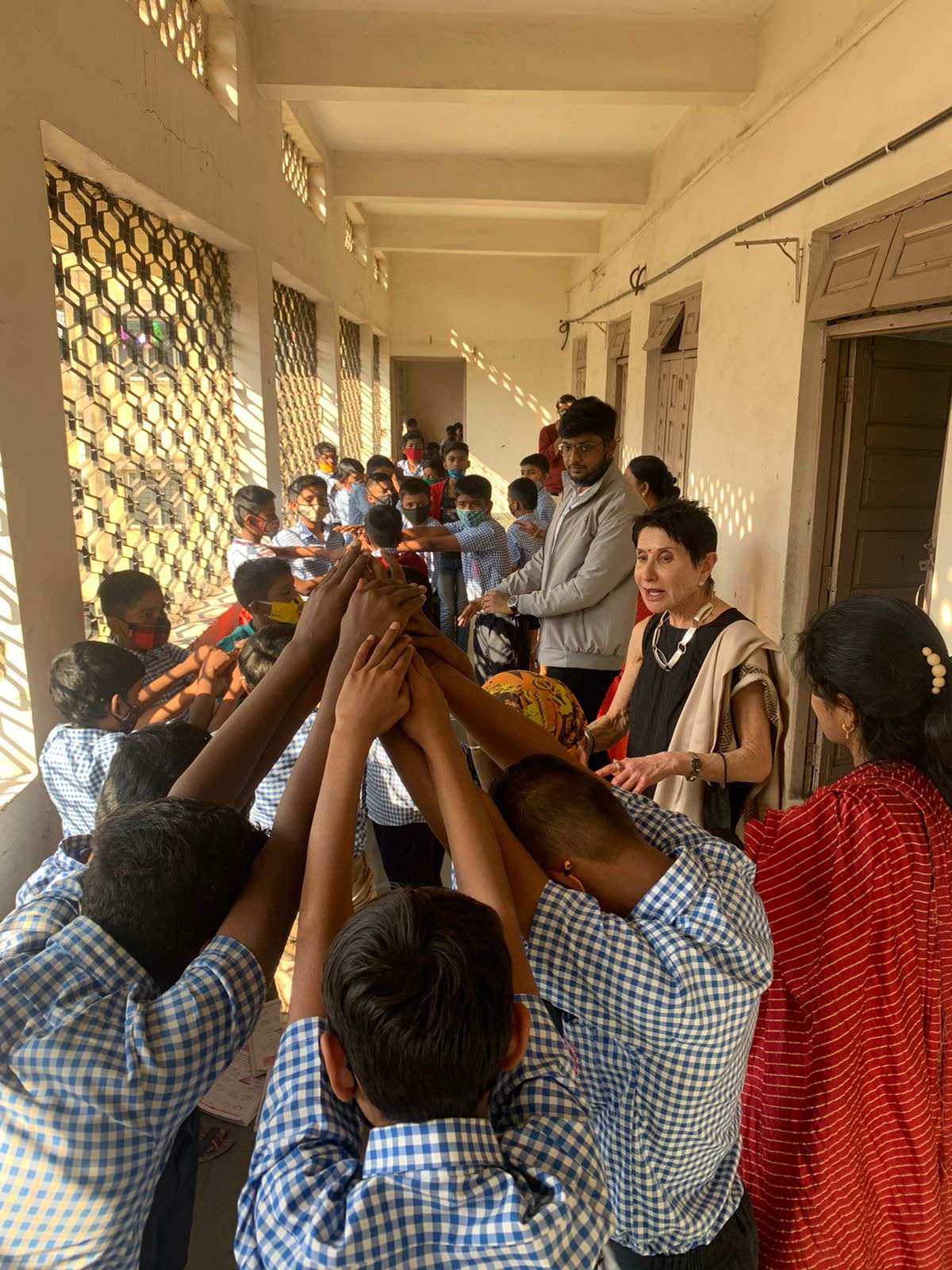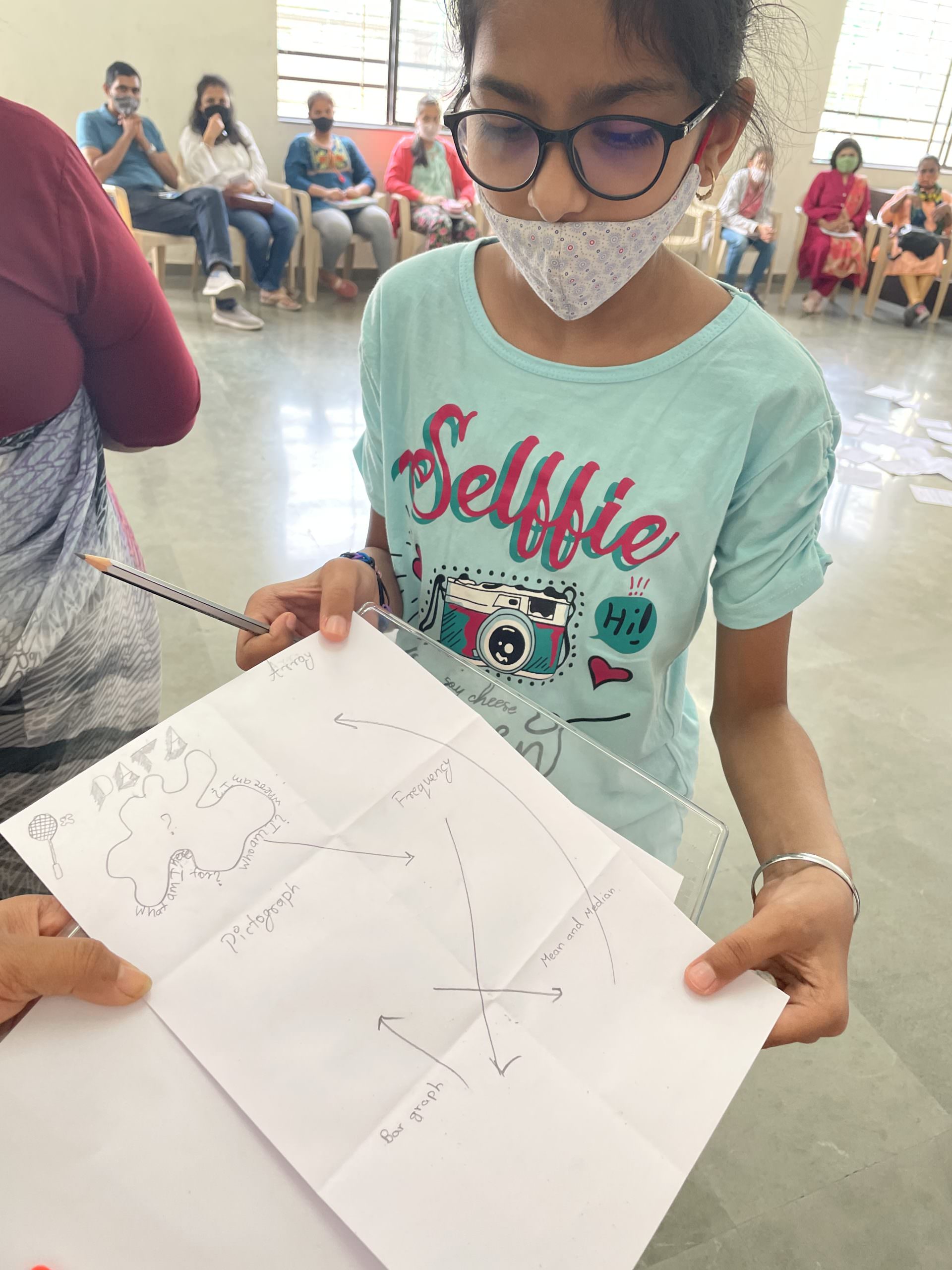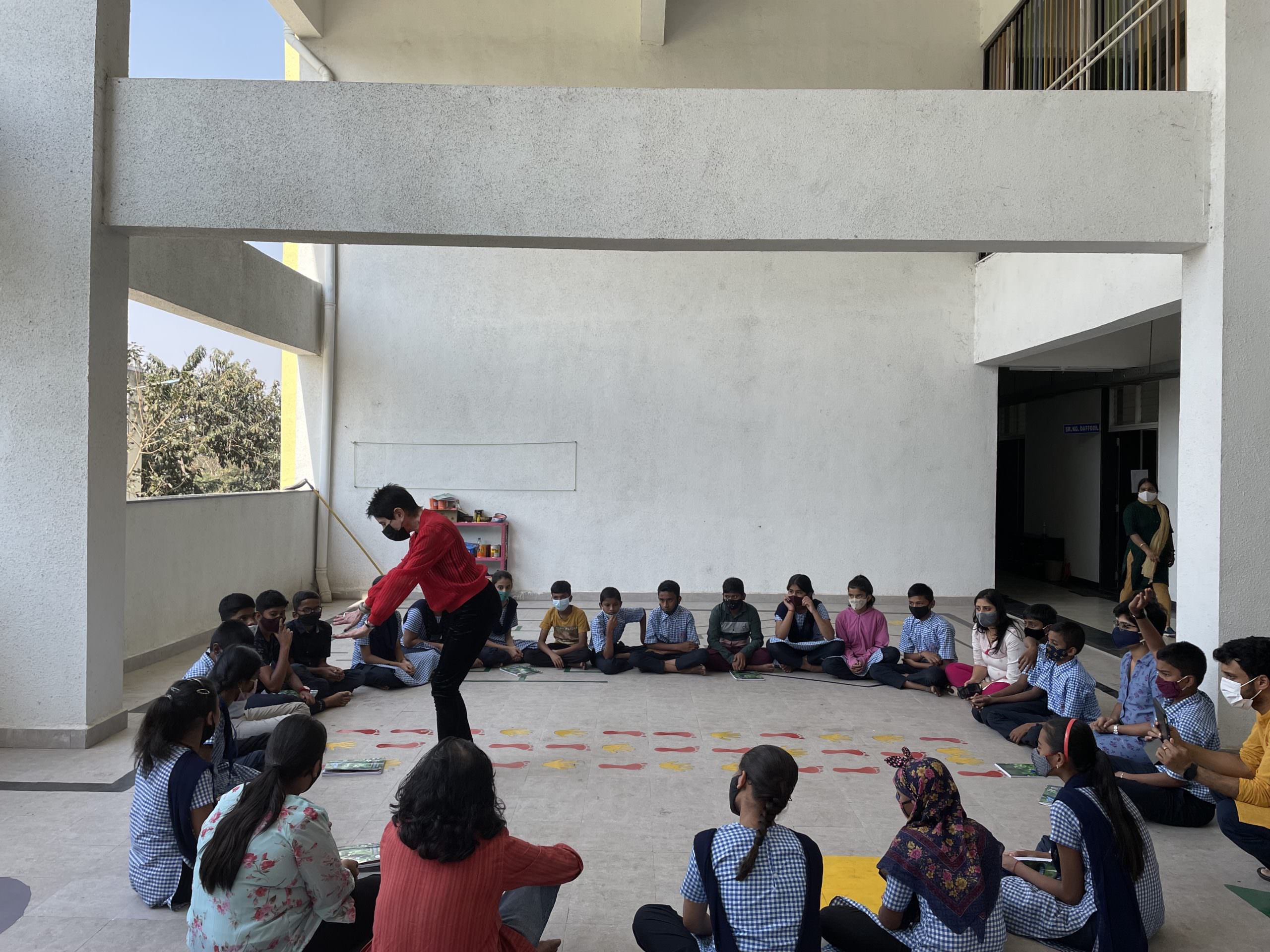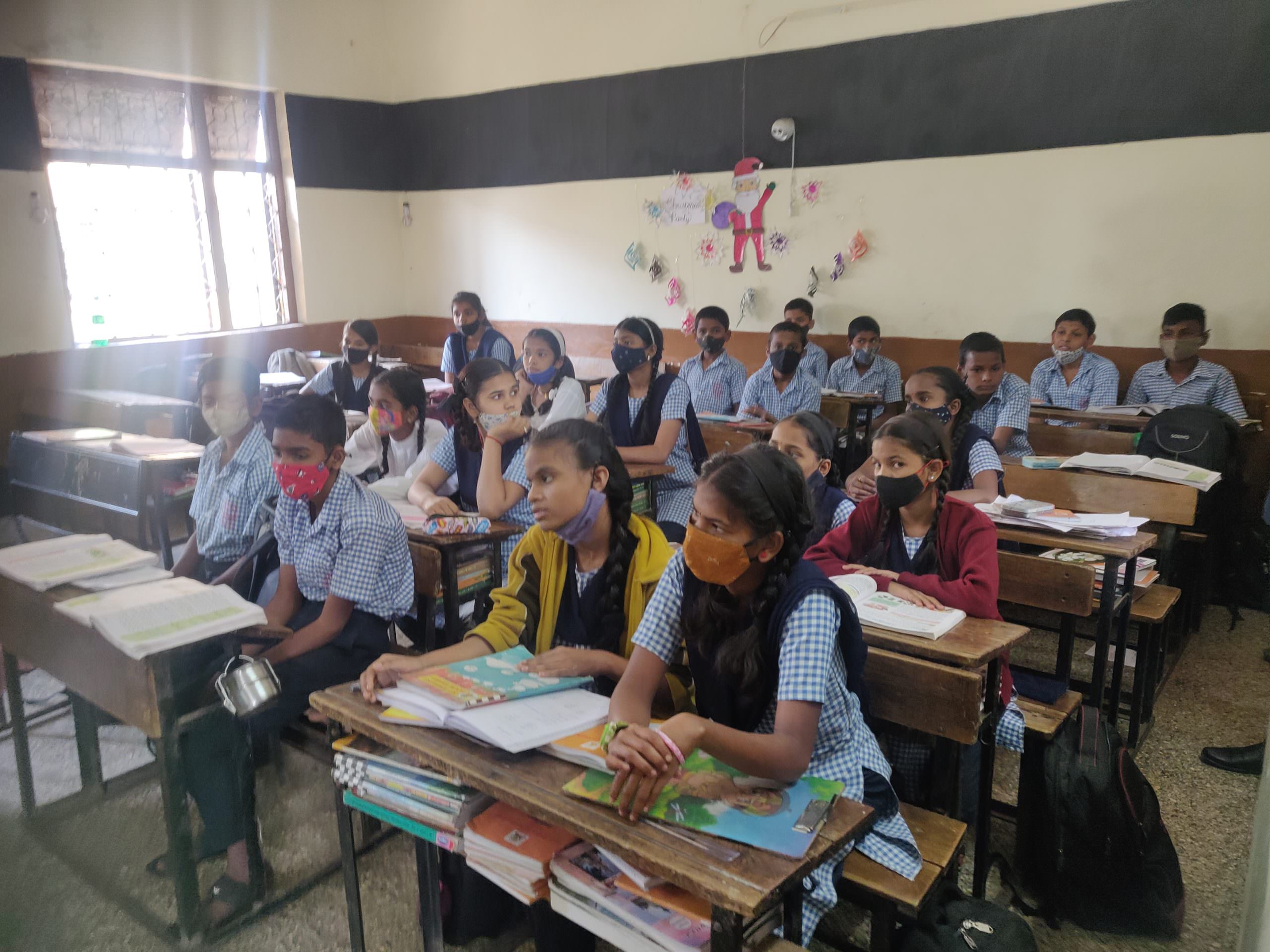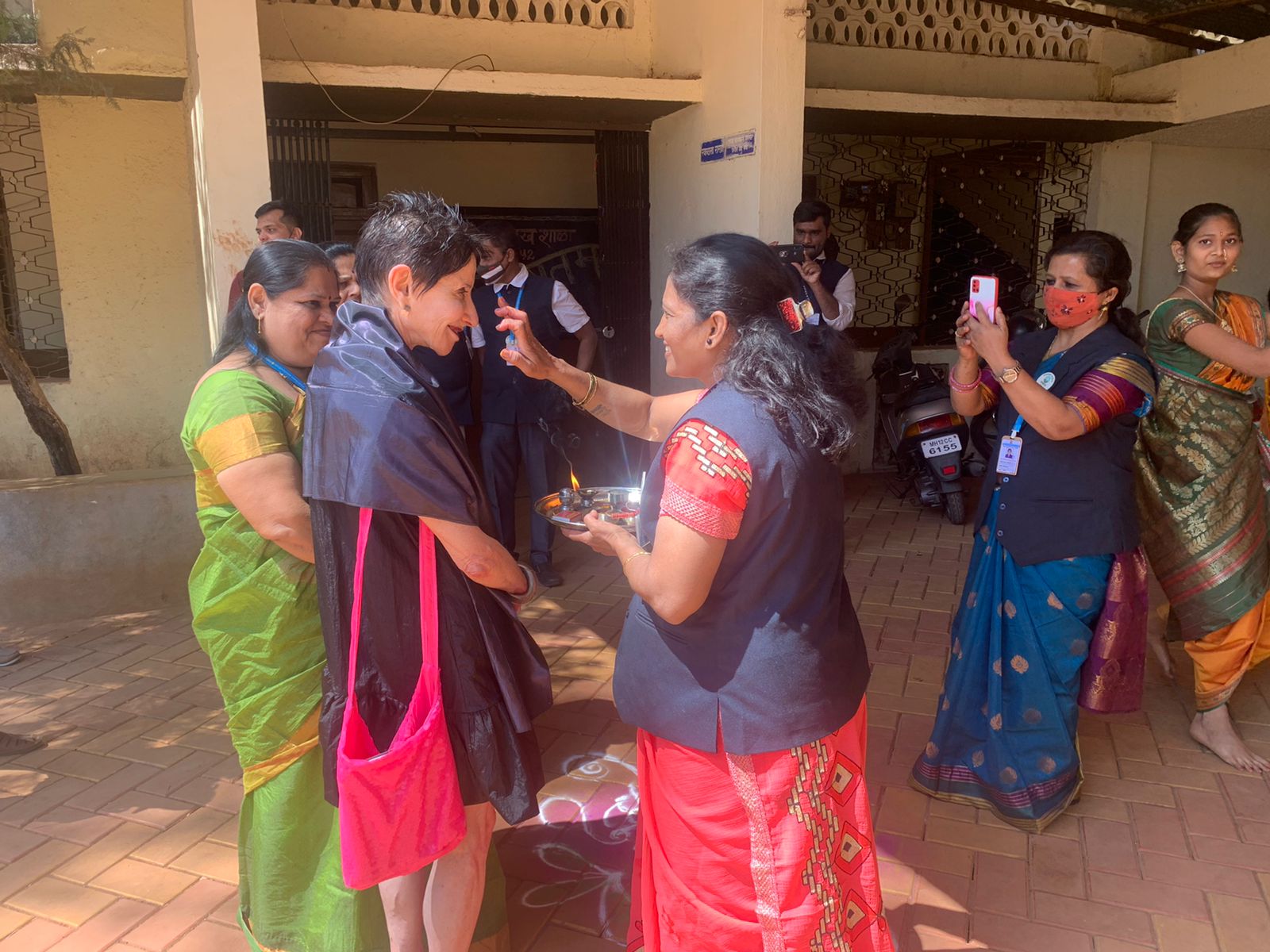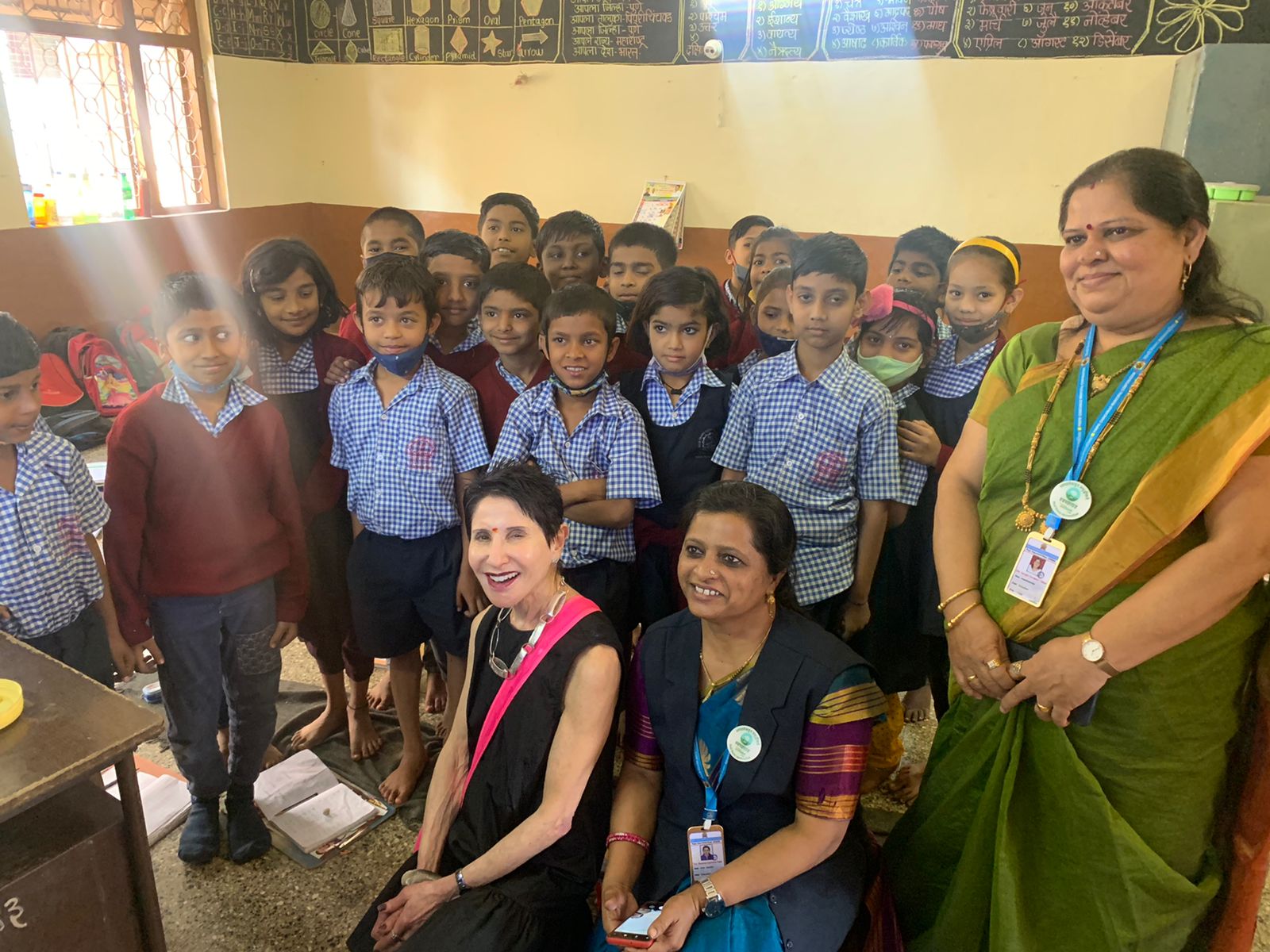
Professor Doris Sommer (center) runs the Pre-Texts project, a global education program that uses art as a teaching tool.
Professor Doris Sommer, a Mittal Institute Steering Committee member, recently visited the Indian city of Pune to launch the Pre-Texts project, a pedagogy based on interpretation through the arts. She is partnering with Professor Yugank Goyal of FLAME University in Pune, where the project is being housed. Pre-Texts is an arts-based training program for teachers of literacy, critical thinking, and citizenship. While the number of readers has grown worldwide, reading comprehension stays alarmingly low because students need to use texts in order to understand them. With Pre-Texts, students master texts by using them to create visual and performative arts.
Professor Sommer, the Ira and Jewell Williams Professor of Romance Languages and Literatures and of African and African American Studies at Harvard University, implemented this initiative in Boston Public Schools, throughout Latin America, Ireland, China, and now South Asia. Pre-Texts also coincides with the Indian government’s recent mandate to integrate arts into all school curricula. The new focus takes advantage of the rich traditions of art throughout India, both regionally and nationally; however, the challenge for teachers and principals has been how to implement the arts-integration directive. Enter the Pre-Texts program.
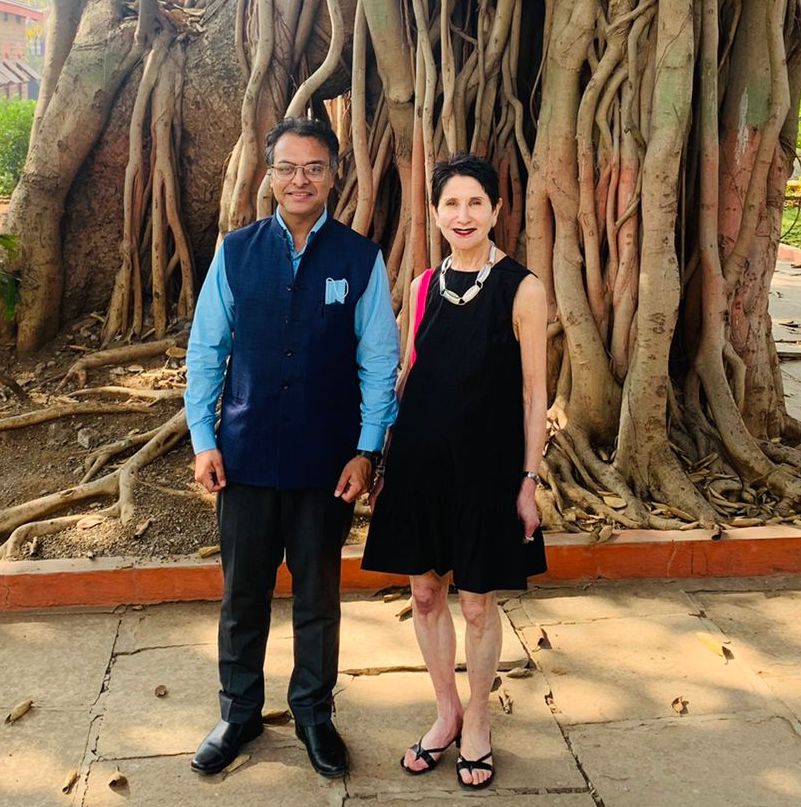
Professor Yugank Goyal of FLAME University in Pune (left) with Professor Doris Sommer, the Ira and Jewell Williams Professor of Romance Languages and Literatures and of African and African American Studies at Harvard University.
Why Pre-Texts?
Traditional teaching methods often fail due to the pyramidal design that they follow: teaching begins with a base of technical information, leading to an understanding and interpretation of the material, then concludes with a creative expression of what has been learned. Unfortunately, this method of teaching often leads to boredom or disaffection among students, who may become fearful or disengaged when trying to memorize new concepts, formulas, and words. Since art here represents an expression of what students already know, as opposed to a form of exploration, it leads to a conceptual error.
With the Pre-Text format of learning, the pyramidal design is reversed – students instead are challenged to create art from a text. This leads to a dramatic difference with students being addressed as artists rather than struggling learners; students then learn to address challenges as opportunities instead of obstacles. The texts can be mastered through dance, drawing, theater, creative writing, etc. and each different interpretation becomes important.
The teachers, principals, and students who participated in demonstrations of Pre-Texts experienced the advantages of this approach. They were eager for their schools to be chosen as the site for the pilot intervention.
Using art as a learning tool: Students perform “The Beggar,” a short story by Anton Chekhov.
The Site Visits
To begin the initiative, Professors Sommer and Goyal visited several schools in Pune with different structures and models – three government-run municipal schools, mentored/run by nonprofits LFE (Leadership for Equity) and Akanksha Foundation; and four private schools. The team also gave a talk to school principals and coordinators from 10 other schools in the region and participated in several other meetings with relevant stakeholders, including Municipal Commissioner of Pune, Chairman of the MCCIA (regional business chambers) and scholars within FLAME University and Gokhale Institute of Politics and Economics.
In several exploratory conversations with various schools and nonprofits, Professors Sommer and Goyal made a brief presentation of Pre-Texts, where they shared evidence gathered by the Shamiri Institute in Nairobi on the mental health intervention in that city’s biggest slum, Kibera. In Kibera, half the adolescents are clinically depressed – yet they have no money for therapy, no available therapists, and experience stigma against acknowledging mental disorder. Pre-Texts does therapeutic work there, with no change of protocol. It is an effective and low-cost intervention, as it allows the entire cohort of adolescents to participate, without singling out a student. After one month of after-school, the results have been exceedingly positive.
Next Steps
The next steps in Pune will be to identify a few schools as the site for a Pre-Texts pilot (which will include both the treatment and control). Then Professor Sommer will virtually train the principal and teachers from two different levels: likely to be grades 1-2 and grades 7-8. The group of 20-25 future facilitators will include the FLAME University team and other relevant stakeholders who can be trainers for future cohorts. The Professional Development program will last for 30 hours, and session alternate between training in the protocol (15 hours over 5 sessions), and teaching (15 hours) to implement the protocol.

